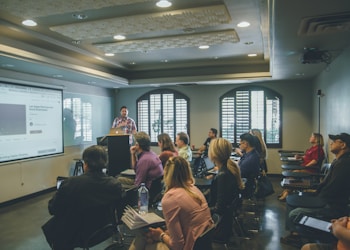The issue of motivation to learn can easily be referred to the eternal: firstly, that motivation and learning are parameters characteristic of the life of absolutely any person; secondly, directly in the educational sphere educators are faced with the need to motivate students every year – and maybe even daily.
In general, the search for a new approach to student motivation is faced by teachers of different disciplines with different professional and life experiences.
The reason for this lies in the changing conditions of life and the paradigm of looking, in the renewal of the education system, in the acceleration of the pace of life.
When planning to use various techniques and methods of motivation in the educational process, it is necessary to remember that they are not as universal as the students’ motives for learning themselves are diverse. In other words, an individual approach works best. For instance, you can learn online teaching to help your education grow. FamilyTutor can assist you with that.
Imagine a queue at the ice cream stands on a hot summer day. Someone wants to freshen up, someone just likes sweets, someone rewards himself with the first ice cream for three months of a successful diet, someone wants to impress a girl on a first date, and someone buys a glass of chocolate chip for his child, so he does not get cranky.
So, everyone in this line wants to buy ice cream, but their motives are different.
Those who are exhausted from the heat, waiting for the coldest ice cream, while for a mother with a stroller, on the contrary, it is better, not icy and quickly, before the baby cried again. Those who treat ice cream symbolically are willing to buy an expensive cone from a well-known brand to enjoy the moment, while others look at this product as a product and are not willing to overpay.
So it is with education at university: everyone will graduate with knowledge and skills, but what they will be and how they will be obtained – this issue is directly related to motivation.
So first of all, it is worth defining your true motives. What can they be?
- Curiosity, interest, desire to learn something new.
- The desire to get a prestigious education in a high-status university, so that in the future to use the diploma as an argument when applying for a job.
- The need to communicate and the desire to get new acquaintances.
- The need to fulfill a duty to parents, not to disappoint family and friends.
- The desire to immerse yourself in your favorite business, to get specialized knowledge and skills necessary for a certain professional path.
Here are a few tricks from EssayAssistant to keep going down this not easy path.
-
Start the day on the right foot.
If you know the whole day is going to be taken up with study work, stop dreading it. It only makes things worse! Make your mornings healthy, when it’s time to focus on learning-related subjects, you’ll feel refreshed and prepared. Start the day with your favorite breakfast or latte, coffee, smoothie, whatever you like. Make sure it makes you a little happier and make it a habit.
-
Music
Listen to your favorite song as you get ready for the day. It will put you in a good mood. When it comes time to study, you can use music to focus and avoid distractions. Try listening to classical or instrumental songs. Because of the absence of song lyrics, we can concentrate better on the words we are reading while studying.
-
Sleeeeeeeeeep.
Oh yes, sleep! We usually need about 6-8 hours of sleep to keep our brains functioning at their peak the next day. Less than 6 hours can leave you nurtured to your bed to sleep. Sometimes it’s ok to pay for dissertation, health is much more important. And don’t go to bed late watching a TV show or movie! No, we won’t be watching Instagram anymore.
-
Treat yourself.
It’s easy to lose focus when you’re tired, so reward your hard work by turning it into something you enjoy. Whether it’s your favorite food, drink, or a nice 10-minute walk, do something that makes your day special. It’s okay to make concessions and small antics to yourself, as long as it benefits your mind.
-
Production Breaks.
Take breaks. We all need them! But I’m not talking about a 3-hour break from studying, however, 15 minutes is plenty. If you feel like you’re staring at your textbook for too long, go for a short walk or exercise. Do something to alleviate anxiety and stress. Don’t let yourself watch TV or sit on the Internet; remember, this is not resting. Move your muscles, even if it’s only for a few minutes. You will feel less stressed and more focused on the information in front of you.










